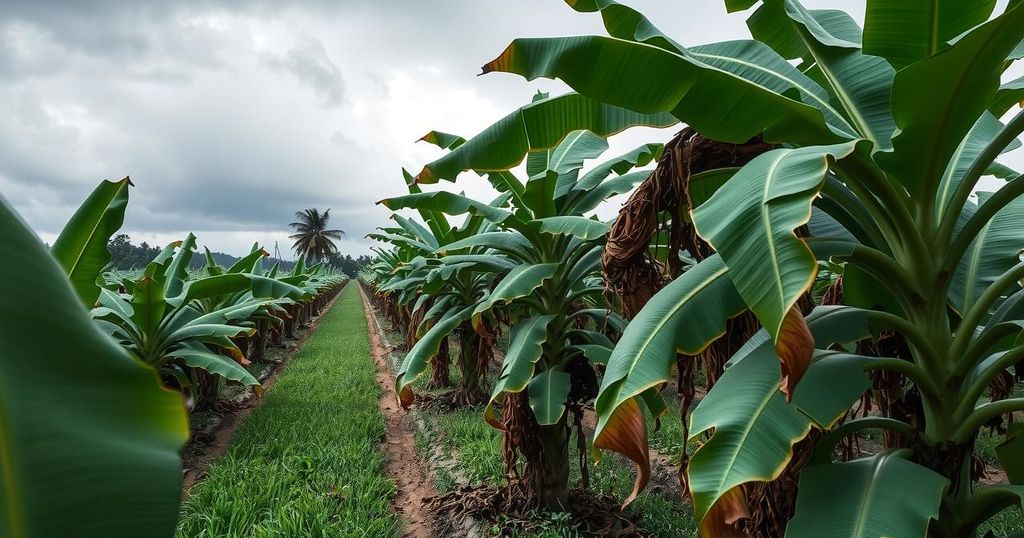The University of Exeter’s research reveals that climate change could make banana cultivation in Latin America and the Caribbean economically unfeasible by 2080. It indicates that 60% of current banana-producing regions will struggle without immediate action. Key countries affected will be Colombia and Costa Rica, while strategies for adaptation include improved irrigation and developing heat-tolerant varieties.
Recent research conducted by the University of Exeter has indicated that climate change, alongside rising temperatures, will render banana cultivation in Latin America and the Caribbean economically unviable by the year 2080. The study, titled “Socioeconomic Constraints to Climate Change Adaptation in a Tropical Export Crop,” highlights that without immediate interventions, 60% of current banana-producing regions may face significant challenges in maintaining fruit production in the next fifty years.
The research further emphasizes that labor shortages and inadequate infrastructure will hinder adaptation efforts. Most of the banana production occurs in densely populated areas close to major ports, which restricts the relocation of plantations to more suitable zones. This geographical limitation poses an additional barrier to effective response strategies amidst climate shifts.
Utilizing satellite imagery to assess banana production trends across the region, the researchers predict a decrease in optimal cultivation areas, lower yield outputs, and increased worker exposure to extreme temperature conditions. The study indicates that Colombia and Costa Rica are likely to suffer the most severe consequences, while Ecuador and certain regions of Brazil may face milder effects.
To mitigate these challenges, the research proposes several adaptation strategies. These include the development of irrigation infrastructures, the breeding of banana varieties that are resistant to heat and drought, and providing support to producers in effectively managing climate-related risks. Such measures are essential to ensure the sustainability of the banana export industry in the face of ongoing climate change.
In conclusion, the findings underscore an urgent need for action to preserve the banana export industry, set to face severe challenges due to climate change by 2080. Proposed adaptation strategies, including enhanced irrigation and the development of resilient banana varieties, are critical in addressing the potential impacts on banana cultivation in Latin America and the Caribbean. Countries like Colombia and Costa Rica may require focused interventions to navigate the threats posed by rising temperatures and changing climatic conditions.
Original Source: www.freshfruitportal.com






